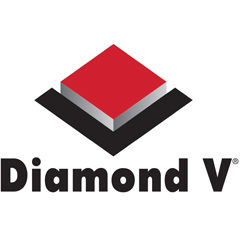A hands-on approach to nutrition helped this dairy realize its full potential when it comes to milk production and animal health. “Since switching to Cargill, it’s like we have a second pair of eyes and hands on the dairy. The regular walk-throughs, manure screenings, shaker box readings, and data analysis from the Cargill team has given our dairy more information than we ever had before,” explains Parker Byington who is the part owner and manager of Heritage Hills Dairy in Southeast Minnesota. On the dairy, Byington uses expertise from the Cargill team and utilizes Cargill feed in his pre-fresh and lactating diets.
In 2016, Byington, his wife, Katherine, and their young family and their parents moved from Eastern Washington to Minnesota. After looking at multiple dairies, they bought a 350-cow dairy near Lewiston, Minnesota.
Throughout the years, the farm has steadily grown to 650 cows and currently has production records of 93 pounds of milk, 4.2% fat and 3.3% protein. Byington notes that his current production highs were achieved recently, and a large factor was his switch to Cargill nutrition and the expertise of his nutritionist team, Mike Westphal and Jodi Weisenbeck.
Heritage Hills Dairy in Southeast Minnesota says working with the right team has given them confidence in their farm’s future. “We've made strides in lowering our cost of production and are now better prepared for whenever the next downturn comes. A consulting team providing a higher level of involvement at an economical price to the farm is why we are so much farther ahead.”
It was just this past April when Byington started with Cargill. He remembers the first thing he and Westphal did was write down the goals for the herd. “Obviously, the biggest goal was to increase production and along with that sustain 6.5 pounds of components, which seemed like a very difficult thing because at the time we were just around 6 pounds,” shares Byington.
Byington says it wasn’t long after that Westphal identified the first opportunity for Heritage Hills Dairy. From taking manure screenings and doing regular walk-throughs of the cows, Westphal found that the rate of passage was too fast. The cows weren’t able to absorb all the available nutrients from the feed because the physical effective fiber of the forage wasn’t adequate.
“Being able to feed the correct amount of physical effective fiber slowed down the rate of passage and maximized the digestion of the feed,” explains Westphal, Cargill Dairy Focus Consultant. “Managing the physical effective fiber not only helped us reach the goal of increasing production and components, but it also helped to lower dry matter intakes to an acceptable level for the milk production Heritage Hills was getting.”
Beyond manure screenings, regular urine pH testing has been a tool that Westphal and Weisenbeck use to manage transitional cow issues. The Cargill team says this helped them target fresh animal issues such as ketosis, retained placenta, and milk fever.
Byington notes Cargill’s hands-on approach as an important piece to the dairy’s recent successes and says the proof is in the health of his cows. “When we finally hit 6.5 pounds of components, it was a great feeling and a moment of accomplishment that we've been able to do something we set out to do. At the same time, the cows are healthier than I've ever had them. We're milking more cows than ever on this site and I am having fewer sick cows than when I was milking 350 cows.”
Today, Heritage Hills Dairy has surpassed its production goals of 6.5 pounds of components and is now averaging above 7 pounds. Byington gives the nod to Westphal and Weisenbeck as key partners in steadily increasing the farm’s production.
As for whatever the future holds, Byington says, “Bring it on.” He rationalizes that he and his young family are prepared for it now that they have a stronger consulting team supporting them.
“We've made strides in lowering our cost of production and because of that, we’re going to be better prepared for whenever the next downturn comes. A better consulting team providing that level of involvement at an economical price to the farm is why we are so much farther ahead,” says Byington.
See how the Cargill dairy team can help in all areas of your dairy at our Cargill Dairy Dreams blog. And, if you are interested in working with our Cargill Dairy Team you can contact us here.





